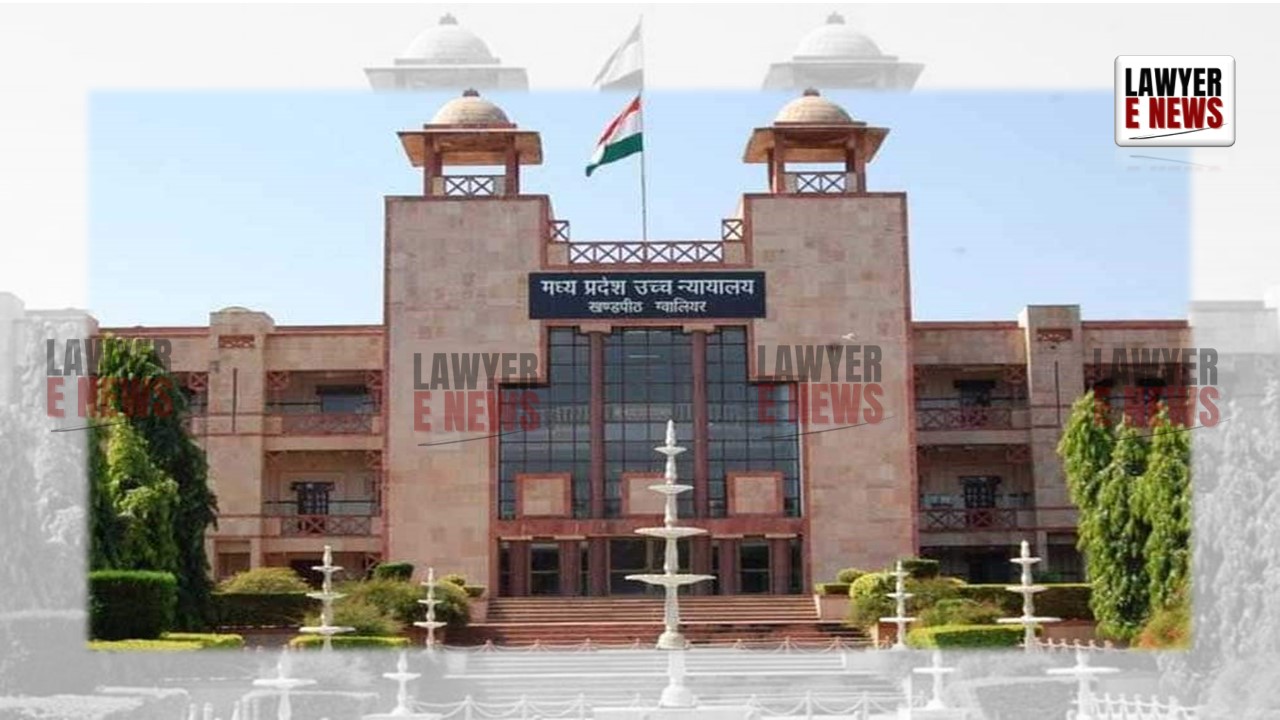-
by Admin
15 February 2026 5:35 AM



Madhya Pradesh High Court at Indore, under the bench of Justice Prem Narayan Singh, delivered a notable ruling in the case of Criminal Revision No. 3028 of 2019 and Criminal Revision No. 3931 of 2022. The judgment addressed the contentious issue of maintenance awarded to a wife under Section 125 of the Criminal Procedure Code (Cr.P.C.). The court reduced the interim maintenance awarded by the family court from ₹60,000 to ₹40,000 per month, emphasizing that a well-qualified spouse should not be left idle on maintenance alone.
The wife had filed an application under Section 125 of Cr.P.C. in the Family Court, Indore, claiming that she was harassed both physically and mentally by her husband, which led her to live separately. She stated that her husband was employed as a Vice President at Citi Bank in Dubai, earning a monthly income of around 13,333 Dirhams and an additional income from properties in Pune and Mumbai. In contrast, the husband contended that the wife was well-educated, employed in a bank in Dubai, and earned AED 3500 per month. He argued that she left the matrimonial home without any sufficient cause and was capable of maintaining herself.
The family court, after considering the evidence, awarded the wife an interim maintenance of ₹60,000 per month. Dissatisfied with this decision, both parties approached the High Court in criminal revision petitions—the wife seeking an increase and the husband seeking a reduction in the maintenance amount.
The central legal question before the High Court was to determine the appropriate amount of maintenance considering the financial status of both parties. The court had to assess whether the maintenance awarded by the family court was just and reasonable given the wife’s qualifications and earning potential.
The court referred to several precedents, including Shamima Farooqui vs. Shahid Khan (AIR 2015 SC 2025) and Kalyan Dey Chowdhary vs. Rita Dey Chowdhary Nee Nandy (AIR 2017 SC 2383), which established that while the husband's obligation to provide maintenance to the wife is of high importance, the amount should be reasonable and should not encourage idleness.
Justice Prem Narayan Singh observed that although the wife is entitled to maintenance, it should be proportionate to the husband's income and the wife's capacity to earn. The court emphasized that Section 125 of Cr.P.C. is not intended to create "an army of idle or inactive people waiting for maintenance." It highlighted the need for the wife to actively pursue gainful employment, considering her educational qualifications and work experience.
"A well-qualified spouse should not be left idle or to remain idle basing on their maintenance amount received from their husband. Section 125 of Cr.P.C has not been constituted to create an army of idle or inactive people waiting for maintenance to be awarded from the income of the other spouse."
The court also scrutinized the husband's income and financial responsibilities. It acknowledged his role as the primary caregiver for his aged parents and noted that he had already paid a significant sum as permanent alimony. The court took into account the husband's salary certificate, which showed a gross monthly pay of 35,364 Dirhams, equating to approximately ₹4,00,000. Considering the cost of living in foreign countries, the court assumed that the husband would expend around 50% of his income on domestic expenses abroad.
After weighing all factors, including the wife's qualifications, the husband's financial status, and his obligations, the court concluded that the maintenance amount of ₹60,000 per month was excessive. It reduced the amount to ₹40,000, considering it to be a fair and reasonable sum for the wife to maintain a standard of living comparable to what she had during her marriage. The court emphasized the importance of both parties contributing to their financial independence, noting that a spouse with the capacity to earn should not rely solely on maintenance.
Date of Decision: September 10, 2024
Smt. ABC vs XYZ
